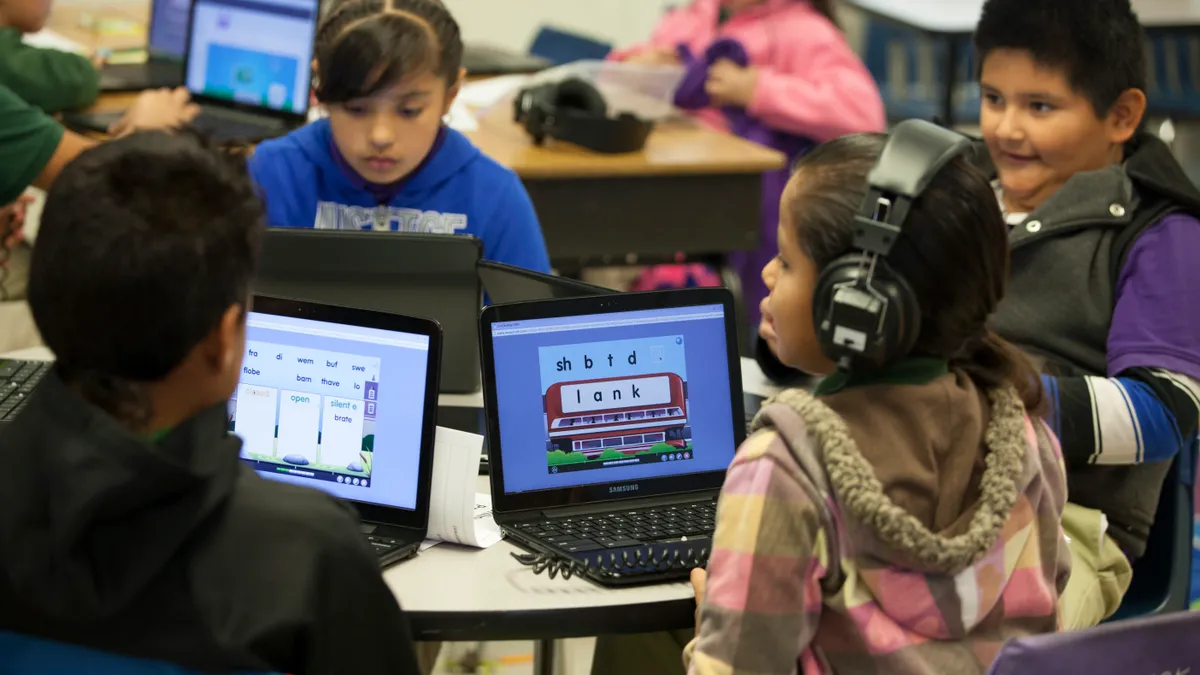Dive Brief:
- Schools are in part responsible for navigating the 20-year old Children’s Online Privacy Protection Act (COPPA), which protects children under 13 online but can be tricky to comply with, according to EdSurge.
- Schools and districts want to offer students abundant opportunities to learn using technology, but experts say they should monitor applications that students use by understanding COPPA compliance, revealing information to parents, and getting parental consent when necessary (one district sends home a consent letter that lists all the applications the students will use). They can also ask vendors and other districts for help.
- Justin Bathon, a lawyer and associate professor of educational leadership at the University of Kentucky, says that administrators should take a “top-down” approach where they choose technology rather than traditional practices where teachers have done so, warning that teachers will have to plan ahead and get approval if they want to use a different application in class.
Dive Insight:
One recent study indicated that the majority of the 5,855 most popular free children’s apps are potentially in violation of COPPA, mainly because they don’t adequately prevent tracking and behavioral advertising.
That report suggests that even those that get approval through a safe harbor program and are supposed to “create privacy practices that go above and beyond COPPA’s minimum requirements” aren't much better at protecting students, and in some cases are worse.
A 2014 California law protecting student privacy that has been copied in other states clears up the various types of advertising, profiling and tracking that could be a problem for schools, according to Girard Kelly, director for privacy review at Common Sense, who says that educators often don’t fully understand these threats to privacy.
Monica Bolger a senior fellow with the Future of Privacy Forum, a group that studies privacy in education technology and a leading expert in privacy breeches at schools, has expressed concern that personalized learning specifically presents opportunities for privacy to be breached. She has also documented the history of the education application InBloom, a failed company whose data collection raised early, loud concerns about student privacy online and prompted legislation.













